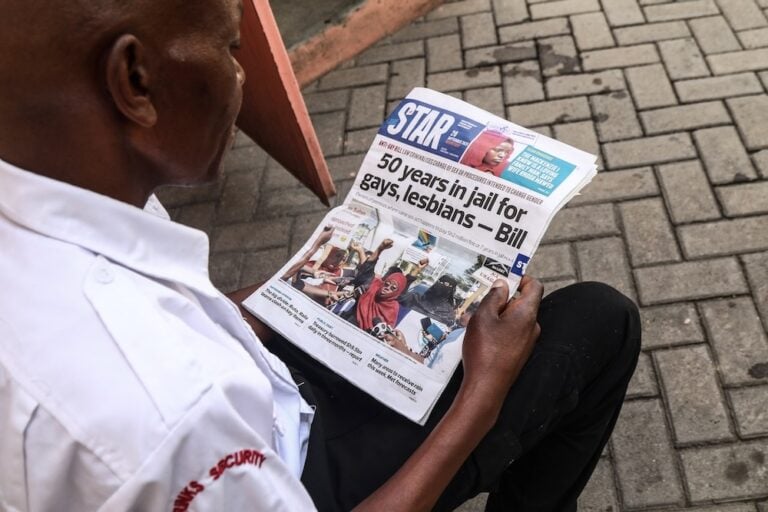On 29 February 2000, Royal Media services, the parent company of Citizen radio, lost its bid to have Telkom Kenya, the Communication Commission of Kenya (CCK) and Kenya Broadcasting Corporation (KBC) reconnect power to its transmitters in Londiani, Nyeri and Nyambene. Justice Kasanga Mulwa, who heard the case, said Royal Media had failed to show […]
On 29 February 2000, Royal Media services, the parent company of Citizen radio, lost its bid to have Telkom Kenya, the Communication Commission of Kenya (CCK) and Kenya Broadcasting Corporation (KBC) reconnect power to its transmitters in Londiani, Nyeri and Nyambene. Justice Kasanga Mulwa, who heard the case, said Royal Media had failed to show that it had a case against the defendants, Telkom Kenya, CCK and KBC. He struck out the application with costs.
The judge said that Royal Media had freely entered into arrangements with Telkom Kenya to use its facilities and was allocated broadcasting frequencies at a fee to operate in Mombasa, Nyeri, Saba Saba, Nanyuki, Kinangop and Rongai. However, Telkom Kenya disconnected the facilities in Londiani and disabled the broadcasting operations in the Rift Valley, Central and Nyanza provinces. Royal Media went to court to seek a mandatory injunction against the defendants to restrain them from interfering with the operations of the station until the suit is heard and determined.
Justice Mulwa said according to the submissions of Kenneth Kiplagat for the CCK, the operations of Royal Media were illegal because the broadcasting frequencies had been withdrawn.
He added that the Londiani transmitter was erected illegally because the frequency being used in Nakuru was 100.5, which was different from the one in Londiani. He further said that the equipment used had not been approved by the CCK. He said the frequencies should have been allocated according to the International Telecommunication Union.
Justice Mulwa told the parties that Royal Media had failed to show that CCK had breached the Kenya Communications Act through its actions. “There are other broadcasters in the country who have continued to broadcast because they have not involved themselves in co-sitting arrangements,” he said. He ruled that it was impossible to grant a mandatory injunction against KBC because Royal Media had failed to prove clear breaches in the agreements. The judge said, “I am satisfied that the international obligations to which the country was committed under the International Telecommunications Union regime and the convenience sought by the plaintiff must be complied with. Any party that fails to comply with sitting requirements for equipment commits a criminal offence and I cannot grant any injunction sought by parties that fail to comply with such requirements,” he said.
Speaking for Royal Media, Kamau Kuria said he would appeal against the ruling. “The decision by the judge was very important to other players in the broadcasting industry because it reflects on future investments in this industry,” Kuria said. He added that his client had invested Kshs 600 million (approx. US$8,209,663) in broadcasting equipment and it was going to waste, following the disabling of its transmitters. Kuria said the decision by the court to refuse to act against the injunction sought by the plaintiff was a clear indication that the liberalisation of the airwaves has yet to be realised.


